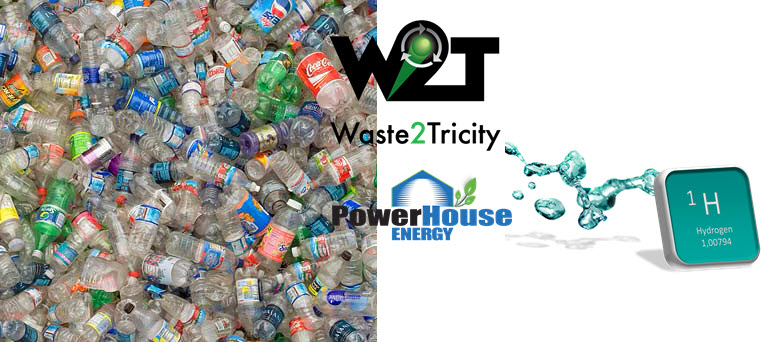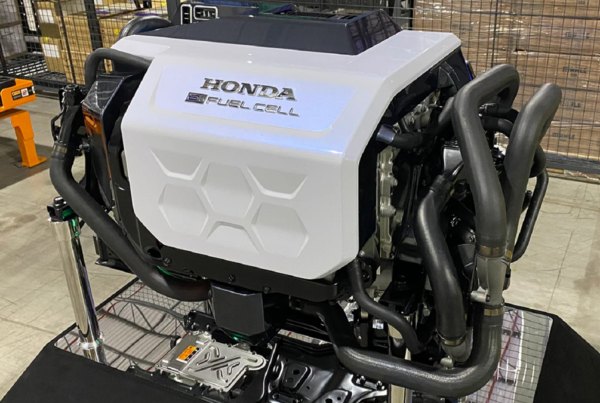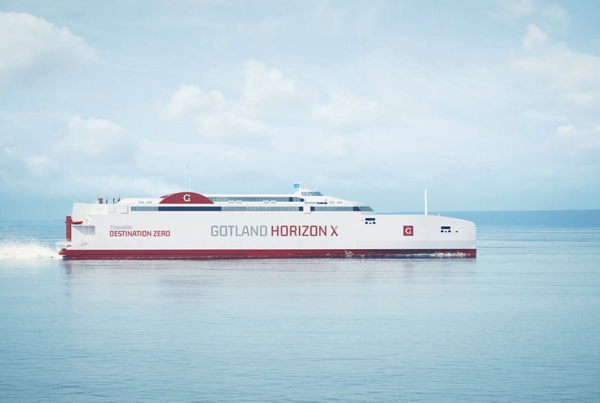
Waste2Tricity, the UK technology company developing pioneering hydrogen production from waste plastic, has been offered a conditional £1.25m grant for its planned Plastics to Hydrogen Facility at Protos, near Ellesmere Port.
The grant award follows a successful application to the £4.1m Energy Fund competition, run by Cheshire and Warrington Local Enterprise Partnership (LEP) as part of the Local Growth Fund (LGF) , awarding capital grants for projects that can support the objectives of the LEP’s Energy and Clean Growth Strategy, and is offered subject to meeting the terms and conditions of the fund.
The Strategy sets out longer term aspirations to support Cheshire and Warrington’s position as a leading European centre for Low Carbon and Energy Technologies, with an ambition to create the country’s first smart, connected net zero-carbon industrial cluster, harnessing expertise and opportunity within the hydrogen, nuclear and other low carbon economies.
Waste2Tricity (W2T) has recently signed (22nd December 2019) an Agreement to be acquired by partner company PowerHouse Energy Group PLC. The acquisition is subject to the approval regulators and both sets of shareholders. The grant has been awarded to purchase the thermal conversion chamber a core part of the Protos Plastics to Hydrogen Facility to be built at Protos Energy Park. The planning permission application is currently in progress but it is expected the facility will be commissioning by the end of the year.
Together with Peel Environmental, Waste2Tricity have recently made significant progress towards the first commercial operation of the DMG® Technology in the UK. The plant will use ‘UK first’ advanced thermal treatment technology developed by PowerHouse Energy Group plc (AIM: PHE), at Thornton Science Park, next door to Protos, And will produce up to two tonnes of hydrogen each day and export up to 82MWh of electricity to the local grid.
Tim Yeo, Chairman of Waste2Tricity said: “This grant offer recognises the importance of the PHE DMG technology and the impact it may have on assisting Cheshire and Warrington and potentially the country to the target of net zero emissions – through the creation of hydrogen fuel from waste plastic. Cheshire and Warrington’s Energy and Clean Growth Strategy shows leadership in this area, one that the rest of the country should look to”.
Dave Ryan, CEO of PowerHouse Energy said: “We congratulate W2T and Peel on securing this award from Cheshire and Warrington Local Enterprise Partnership, representing confidence in our DMG process as an important technology to deliver clean energy from unrecyclable waste plastic. Furthermore we are delighted and encouraged to be recognised as a component in the North West Region’s strategy to provide Clean Growth.”
Robert Mee DL, LEP Board Member and Chair of the Strategy Board said: “The LEP is clear in its ambition to be a leader in clean growth and developed the Energy Fund to support the sector in accelerating the pace and scale of innovation in energy technology and distribution. W2T’s application to the fund clearly made the case for the benefits of plastics recycling in the creation of hydrogen fuel, with their proposed £20m plant in Ellesmere Port set to be a UK leader in this field.”
SIGNFICANT PROGRESS
There has been significant progress towards the first commercial operation of DMG® Technology in the UK.
PowerHouse Energy is in collaboration with Peel Environmental, who have completed their review of the completed engineering work and moved to commitment to the next stage of development and engineering for the Protos Energy Park.
The design has progressed such that the DMG® facilities at Protos would have the capacity to process 35 tonnes per day of waste plastics, targeting to produce 3.8MWe on site and exporting 3.4MWe electricity and up to 2 tonnes of hydrogen per day from the site.
The collaboration agreement signed in August 2019 with Peel Environmental and Waste2tricity has an aim to develop a minimum of 11 sites in the UK for DMG® facilities. Peel have a strategy to develop “Plastic Parks” where waste plastics are recycled and regenerated. Peel’s plans are to bring together potential counterparties for waste, power and hydrogen with a nett negative CO2 contribution for each site. PHE’s DMG® process will be an enabling technology to ensure no plastic is sent to landfill from these sites by regenerating the waste plastic into power and hydrogen.
These Plastic Parks will ultimately create a countrywide plastic circular economy with each site creating a local source of hydrogen which could be used as a clean and low-cost fuel for buses, Heavy Goods Vehicles (HGVs) and cars, helping to reduce air pollution and improve air quality on local roads. The parks will also provide a solution to the UK’s problem with waste plastic.
Read the most up to date Fuel Cell and Hydrogen Industry news at FuelCellsWorks




